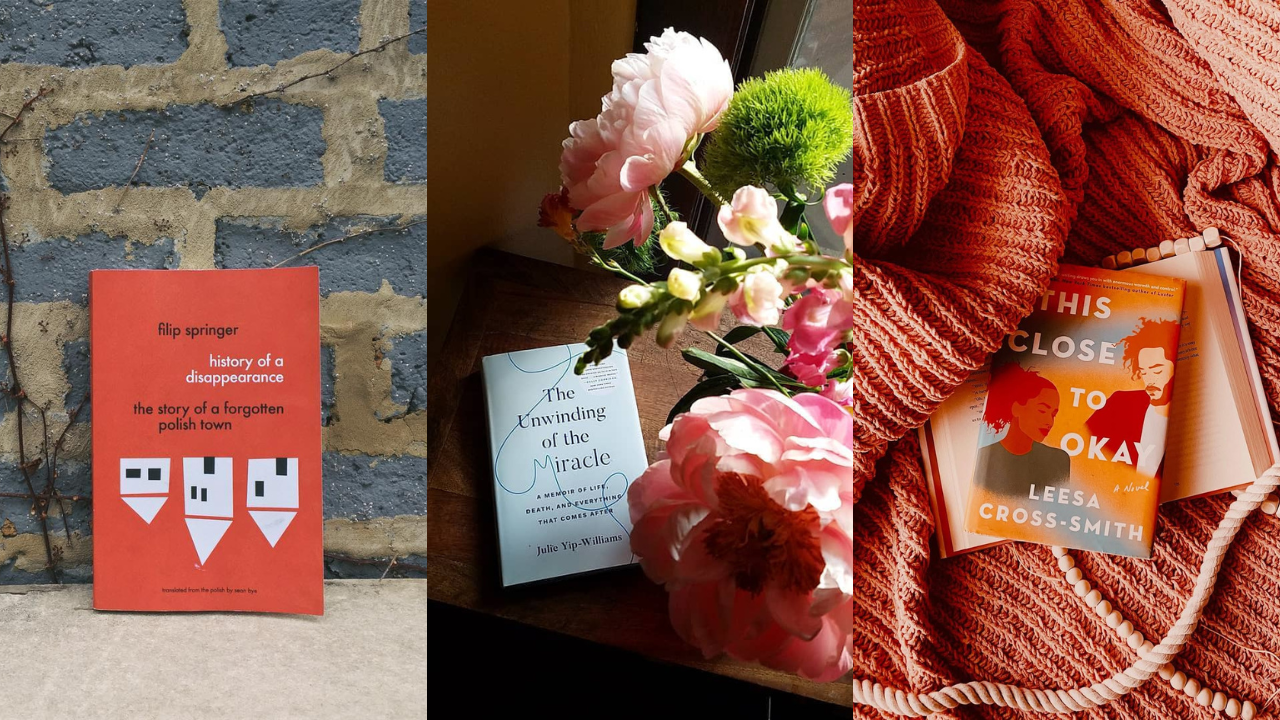Politics
Discover 8 Powerful Books Transforming Trauma Into Truth

Literature often serves as a refuge for those grappling with trauma, providing a pathway to understanding and healing. Eight remarkable books shine a light on the complexities of pain and recovery, illustrating how personal narratives can transform deep wounds into powerful truths. These works do not shy away from harsh realities; instead, they embrace the messiness of life, offering readers both recognition and solace.
Exploring Collective Trauma in History
In his compelling work, History of a Disappearance, Polish journalist Filip Springer investigates the fate of Miedzianka, a town erased from the map. Through meticulous interviews and archival research, Springer reveals how its residents were expelled and the town dismantled, reflecting the tumultuous history of Central Europe. He illustrates how landscapes embody collective trauma and how memory persists even after physical erasure.
Similarly, Julie Yip-Williams confronts her own mortality in The Unwinding of the Miracle. Diagnosed with terminal colon cancer at just thirty-seven, Yip-Williams shares her extraordinary life story, from her traumatic beginnings in Vietnam to her journey in America. Her memoir is a candid reflection on love, grief, and the unfairness of life, offering a poignant testament to the power of truth in the face of despair.
Personal Narratives of Resilience and Healing
In All the Lovers in the Night, author Mieko Kawakami explores the life of Fuyuko, a solitary proofreader in Tokyo. As Fuyuko opens herself to new connections, the novel unravels the pain that has kept her isolated. Kawakami’s portrayal of loneliness and the courage to embrace vulnerability highlights the subtle yet powerful ways in which healing can unfold.
Another notable entry is A Ghost in the Throat by Doireann Ní Ghríofa. This innovative blend of poetry and memoir follows the author’s fascination with an eighteenth-century Irish woman who mourned her murdered husband. Through her exploration, Ní Ghríofa connects her own experiences of motherhood and loss, emphasizing the importance of women’s voices in both history and literature.
Alice Zeniter delves into the complexities of identity and silence in The Art of Losing. Spanning three generations of an Algerian family, Zeniter’s narrative addresses the lingering effects of colonial trauma and the struggle for recognition. Her characters navigate the painful legacies of their past, illuminating how collective memory shapes personal identity.
In This Close to Okay, Leesa Cross-Smith tells the story of therapist Tallie, who encounters a man on the brink of despair. Their weekend together fosters an intimate exchange, revealing the healing power of kindness and shared vulnerability. Cross-Smith captures the nuances of depression and the quiet strength found in connection.
Danya Kukafka offers a different perspective in Notes on an Execution, where the narrative unfolds from the viewpoints of three women connected to a death row inmate. By focusing on the impact of violence on these women’s lives, Kukafka challenges traditional true crime narratives, centering the experiences of those who are often overlooked.
Lastly, Catherine Gildiner shares stories from her clinical practice in Good Morning, Monster, highlighting the journeys of five patients who overcame extreme trauma. Gildiner presents therapy not as a miraculous solution but as a gradual process of recovery that requires perseverance and empathy. Through these narratives, she underscores the resilience of the human spirit.
These eight books do not provide neat conclusions; instead, they invite readers into the complexities of trauma and healing. They resonate on a deep level, reminding us that while scars may remain, they can also be sources of strength and understanding. As readers engage with these narratives, they may find reflections of their own experiences, fostering a sense of connection and shared humanity.
The insights gained from these authors reaffirm that healing is not a linear journey. Through their words, readers are introduced to the profound idea that tenderness can coexist with pain, encouraging a dialogue that validates the struggles many face. As these narratives linger long after the last page is turned, they offer comfort and insight, illustrating the transformative power of storytelling in the face of trauma.
-

 World5 months ago
World5 months agoSBI Announces QIP Floor Price at ₹811.05 Per Share
-

 Lifestyle5 months ago
Lifestyle5 months agoCept Unveils ₹3.1 Crore Urban Mobility Plan for Sustainable Growth
-

 Science4 months ago
Science4 months agoNew Blood Group Discovered in South Indian Woman at Rotary Centre
-

 World5 months ago
World5 months agoTorrential Rains Cause Flash Flooding in New York and New Jersey
-

 Top Stories5 months ago
Top Stories5 months agoKonkani Cultural Organisation to Host Pearl Jubilee in Abu Dhabi
-

 Sports4 months ago
Sports4 months agoBroad Advocates for Bowling Change Ahead of Final Test Against India
-

 Science5 months ago
Science5 months agoNothing Headphone 1 Review: A Bold Contender in Audio Design
-

 Top Stories5 months ago
Top Stories5 months agoAir India Crash Investigation Highlights Boeing Fuel Switch Concerns
-

 Business5 months ago
Business5 months agoIndian Stock Market Rebounds: Sensex and Nifty Rise After Four-Day Decline
-

 Sports4 months ago
Sports4 months agoCristian Totti Retires at 19: Pressure of Fame Takes Toll
-

 Politics5 months ago
Politics5 months agoAbandoned Doberman Finds New Home After Journey to Prague
-

 Top Stories5 months ago
Top Stories5 months agoPatna Bank Manager Abhishek Varun Found Dead in Well









